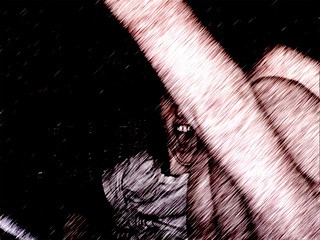Our home and native land. You kick ass. Seriously. In the past week, two different parts in the Anti-Terrorism Acts passed after 9/11 were struck down by two different courts because they violated Canadian Charter of Rights and Freedoms.
The first were three provisions of the Security of Information Act challenged after the RCMP used it to secure search warrants for a reporter's home. A little recap:
In her ruling Thursday, Justice Lynn Ratushny said all three provisions are unconstitutionally vague and overly broad, violating the Charter of Rights and Freedoms guarantee of fundamental justice.
Ratushny also said the sections contravened the constitutional right of press freedom.
"They have not been well-tailored to suit their purpose . . . they arbitrarily and unfairly and with a blunt club of criminal sanction restrict freedom of expression, including freedom of the press," the ruling said.
David Paciocco, a lawyer for O'Neill, said the judgment was "a powerful reaffirmation of how central the role of the media is in protecting democracy."
HA! She was reporting on someone who had been deported by the US to Syria and then tortured into confessing ties to the al-Qaida network. But of course the cops go after the reporter, but fortunately it is not 1984 yet in Canada. Wish I could say the same about the US.
The three provisions of the Security of Information Act struck down Thursday by the Ontario Superior Court:
-4. (1) Every person is guilty of an offence under this Act who, having in his possession or control any secret official code word, password, sketch, plan, model, article, note, document or information that relates to or is used in a prohibited place or anything in a prohibited place, or that has been made or obtained in contravention of this Act, or that has been entrusted in confidence to him by any person holding office under Her Majesty, or that he has obtained or to which he has had access while subject to the Code of Service Discipline within the meaning of the National Defence Act or owing to his position as a person who holds or has held office under Her Majesty, or as a person who holds or has held a contract made on behalf of Her Majesty, or a contract the performance of which in whole or in part is carried out in a prohibited place, or as a person who is or has been employed under a person who holds or has held such an office or contract,
(a) communicates the code word, password, sketch, plan, model, article, note, document or information to any person, other than a person to whom he is authorized to communicate with, or a person to whom it is in the interest of the State his duty to communicate it . . .
-4. (3) Every person who receives any secret official code word, password, sketch, plan, model, article, note, document or information, knowing, or having reasonable ground to believe, at the time he receives it, that the code word, password, sketch, plan, model, article, note, document or information is communicated to him in contravention of this Act, is guilty of an offence under this Act, unless he proves that the communication to him of the code word, password, sketch, plan, model, article, note, document or information was contrary to his desire.
-4. (4) (b) Every person is guilty of an offence under this Act who: allows any other person to have possession of any official document issued for his use alone, or communicates any secret official code word or password so issued, or, without lawful authority or excuse, has in his possession any official document or secret official code word or password issued for the use of a person other than himself, or on obtaining possession of any official document by finding or otherwise, neglects or fails to restore it to the person or authority by whom or for whose use it was issued, or to a police constable.
(read the full article here.)
The second struck down a clause in the Anti-Terrorism Act. The part it struck down was the idea of motive. Because a lot of the 'anti-terror' arrests are made on potential ideological motive this would change the way that the law was enforced. The judge sums it up succinctly: "While the hate motive may be an aggravating factor at sentencing, in the traditional criminal law, motive — the reasons 'why' someone commits a criminal act — neither establishes nor excuses a crime." While some people are talking about how this will not affect arrests or charges I believe it will have a big impact on racial and religious profiling, making it impossible to arrest someone merely because they are muslim, etc. I'm so happy at Canada's judges right now (this is the first terror related arrest to make it to trial). You can read the entire article here.
Wheee, more Epstein revelations
15 hours ago





1 comments:
Ohhhh, this feels so weird. I almost never get to say this about any country, but here we go: you're right, your country rocks.
Ngahhh! You know when you get your wisdom teeth removed, and they pack the cavities with strips of cloth soaked in clove extract, and then after a few weeks they have to remove the strips, so they grab one end with a pair of forceps and kind of UNSPOOL them from your mouth, and your entire body tenses up and goes, No wait I really don'tthinkweshouldbedoingthisgaaaahhhh?
Getting to say that a country rocks gives me that SAME FEELING.
Post a Comment